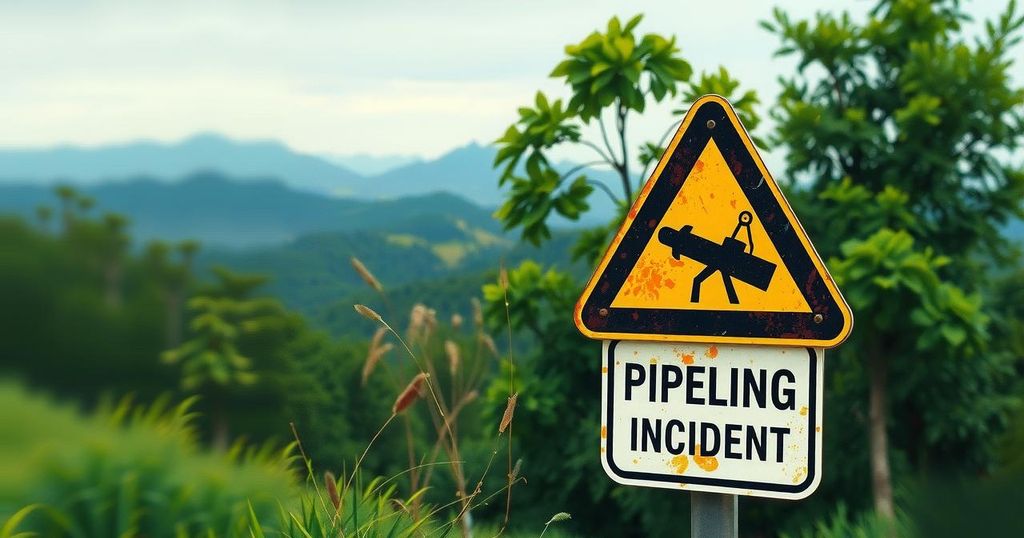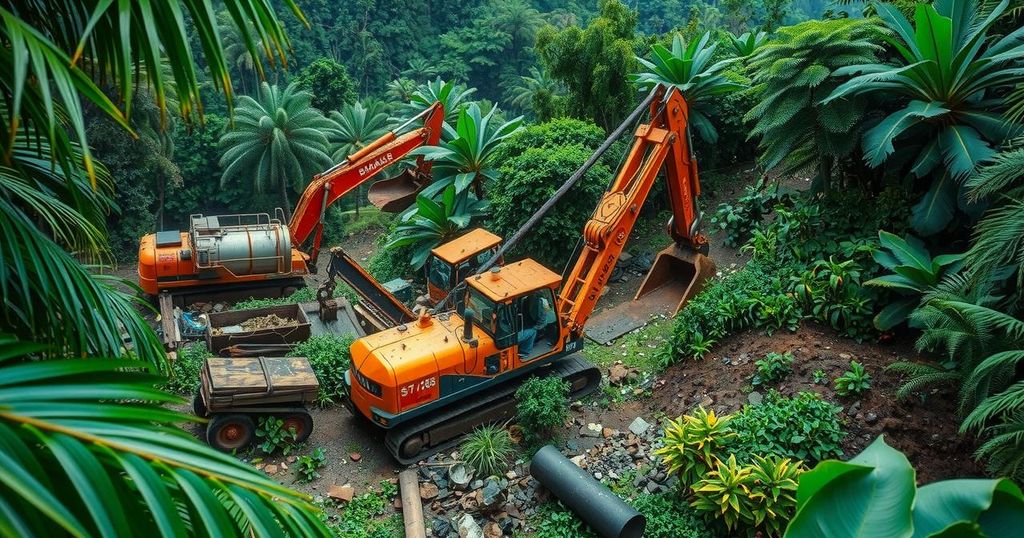Technology
AMAZON, BLOOMBERG, CUBE, ECUADOR, EMERGENCY OPERATIONS COMMITTEE, ENERGY, ESMERALDAS, ESMERALDAS RIVER, EUROPE, GLOBAL ECONOMY, LONDON, OFFSHORE DRILLING, OIL AND GAS, OIL PRODUCTION, OPERATIONS COMMITTEE, PET, PETROECUADOR, SHELL, SHELL PLC, SOTE, SOUTH AMERICA, UNITED KINGDOM, VI, VILKO VILLACIS
Jamal Walker
0 Comments
Petroecuador Declares Force Majeure Due to Oil Spill Crisis
Petroecuador has declared force majeure on the SOTE pipeline following a landslide-induced oil spill, impacting export commitments to Shell Plc. The spill has contaminated parts of the Esmeraldas River, leading to an environmental emergency declaration. Local authorities and residents are mobilizing to address the pollution crisis, while Petroecuador manages the situation.
Ecuador’s state-owned oil company, Petroecuador, has declared force majeure on its Trans-Ecuadorian Pipeline System (SOTE) due to a rupture caused by a landslide, resulting in a significant oil spill. This declaration, made on Tuesday, indicates that Petroecuador may face challenges in meeting its contractual obligations to export crude oil while actively working to manage the spill’s impact.
Internal documents viewed by Bloomberg suggest that the disruption will likely affect exports to Shell Plc, which had arranged to acquire over 1.8 million barrels of heavy sour Oriente crude this month. Shell, headquartered in London, has yet to respond to inquiries regarding this matter.
The SOTE serves as Ecuador’s main pipeline system with a capacity of 360,000 barrels per day, facilitating the transportation of oil over 500 kilometers (310 miles) from the Amazon region to the Pacific coastline. Although Petroecuador has indicated its commitment to address the emergency, it has yet to provide an estimate on the volume of oil that has leaked.
The oil spill, attributed to the landslide, has contaminated a portion of the Esmeraldas River in Esmeraldas province, prompting residents in the town of Cube to report noticeable pollution. Despite efforts to construct dikes to contain the oil, such measures have proven largely ineffective.
In response to the crisis, the Emergency Operations Committee in Esmeraldas declared an environmental emergency, primarily concerned about the quality of the water supply. Vilko Villacis, the mayor of Esmeraldas, characterized the situation as “unprecedented,” leading to a suspension of the diversion of river water to the city’s aqueduct and a plea for residents to conserve water resources.
Ecuador’s daily crude production reached 475,000 barrels last year, with approximately 72 percent of this amount being exported.
In summary, Petroecuador’s declaration of force majeure highlights the significant repercussions of the recent oil spill due to pipeline damage. Shell’s export contracts are expected to be impacted, and the local community faces environmental challenges, prompting emergency measures. Efforts are underway to mitigate the spill’s effects, as officials work to safeguard water quality amid increasing concerns among residents.
Original Source: www.pipeline-journal.net




Post Comment